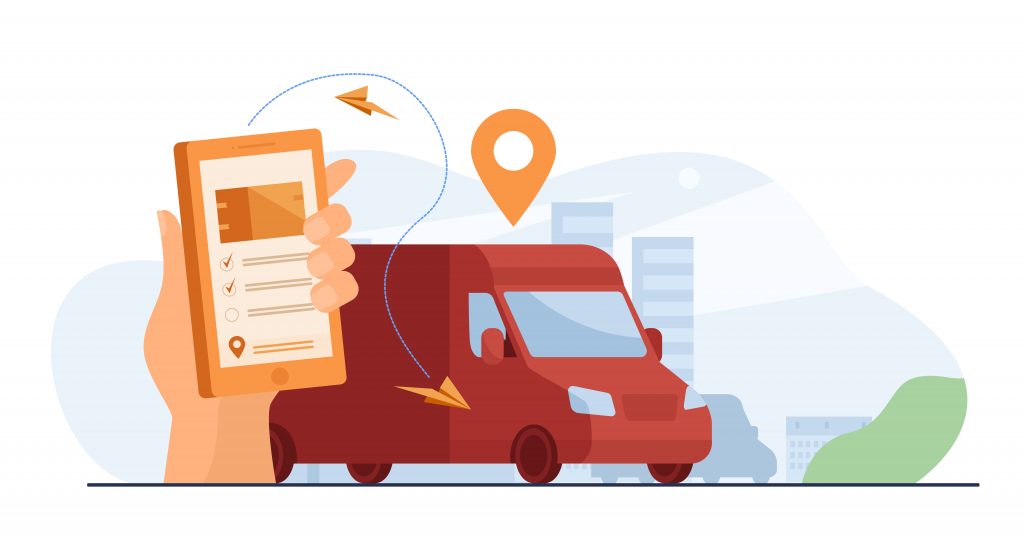Transportation is the backbone of the economy, and any disruption in transportation can have a negative impact on a whole business channel. This is evident when there is a shift in fuel costs; it has a significant impact on the operation of many sectors.
The term “transportation” refers to the movement of people and products from one location to another. This is one of the most important features of every society. Transportation has always been the most important factor in a society’s economic, cultural, social, and political growth. A well-developed transportation infrastructure ensures a country’s rapid development and industrialization. In this post, we’ll talk about goods transportation and the GTA under GST, as well as the GST on transport services.

What is GST (Goods and Service Tax)?
GST (Goods and Services Tax) is an indirect tax collected on goods and services delivered by wide range of organizations in India. This is a multi-stage charge required by the public authority to help the Indian economy in light of the objective of determining goods and services.
GST on Transportation Charges by Road
Road transport services, unlike other forms of transportation, are subject to different GST rates based on the method of transit. The primary rate of GST on the transport of goods by road is as follows:
- GST charges for passengers using public transportation are nothing.
- GST rates for metered autos, taxis, and e-rickshaws are nil.
- GST on non-air-conditioned carriage/stagecoach transportation is nil.
- Transportation via air-conditioned carriage or stagecoach is subject to 5% GST.
- Taxes on radio taxis and other similar services are subject to 5% GST.
- The rate of GST on-road vehicle rental services is 18%.
What Exactly is a GTA?
According to Section 2 of the Central Board of Indirect Taxes and Customs (CBIC) Notification No. 12/2017 dated June 28, 2017, a GTA is “any agency that performs service in relation to the transportation of goods by road and issues a consignment note by whatever name called.”
It’s worth mentioning that before falling under the authority of a GTA, a road transporter must first send a consignment notice. A consignment notice is a document that pronounces the agreement of carriage and the directions given to the transporter for the carriage of products by road. This truly intends that on the off chance that a carrier doesn’t submit a transfer note, the service provider will be outside of the jurisdiction of the GTA.
A consignment letter, on the other hand, says that the lien on the items has been transferred to the carrier. As a result, until the commodities are delivered to the consignee, the carrier accepts responsibility for them.

Is a GTA Liable to Enlist under GST?
There was some uncertainty about whether or not a GTA was expected to enroll under GST. A person who makes solely taxable goods/services on which the Reverse Charge Mechanism (RCM) applies is excluded from getting GST registration, according to Notification No. 5/2017-Central Tax dated 19/06/2017.
Subsequently, assuming a GTA is simply conveying goods where the total duty is required to have been paid by the collector under the reverse charge basis, he doesn’t have to enlist under GST (regardless of whether the turnover surpasses the threshold limit)
What are the Documents Required for GST Registration?
A transporter offering goods transport services must have the following documentation on hand for verification purposes on the GST site in order to register their GTA company under the GST umbrella.
- Aadhar card
- PAN card (Permanent Account Number)
- Details of your bank account
- Copy of an electricity bill
- Proof of address
- Deed/document of ownership (in the case of owned property)
- Property tax receipt
- The owner’s consent letter/No Objection Certificate (NOC)
- Lease/rent agreement (if the property is leased or rented)
- Copy of the Municipal Khata
- Other documents if asked

What is the GST Rate on GTA?
The Goods Transport Agency (GTA) is subject to two rates of taxation. The accessibility of Input Tax Credit under GST influences GTA (ITC). Depending on the conditions, the goods transport agency may levy a rate of 5 % or 12 % GST.
- The rate of GST on transport business under GTA is 5%, and the GTA is not authorized to claim input tax credits on goods and services utilized to provide services.
- Under the advance charge approach, the rate of GST on transport services under the GTA is 12 percent.
- Any additional goods cost 5% without the ITC and 12% with the ITC for GTA.
- GTA must submit the tax to claim ITC if it charges 12% for shipping items to 7 designated recipients. Alternatively, if the GTA imposes a 5% tax, the receiver is subject to the Reverse Charge Mechanism (RCM), which requires them to deposit tax and prevents them from claiming ITC.
- Other GTA services, such as shipping agricultural goods, milk, beans, rice, wheat, newspaper, and magazine, are exempt from GST.
- GST on transport services will not be applicable if the value paid for the transportation of goods on a consignment delivered in a single carriage is less than Rs.1500.
- GST on GTA would not be levied if the amount charged for transportation of commodities for a single recipient does not exceed Rs.750.
I hope, you have got all the information related to GST on transport services! Thank you for reading!

